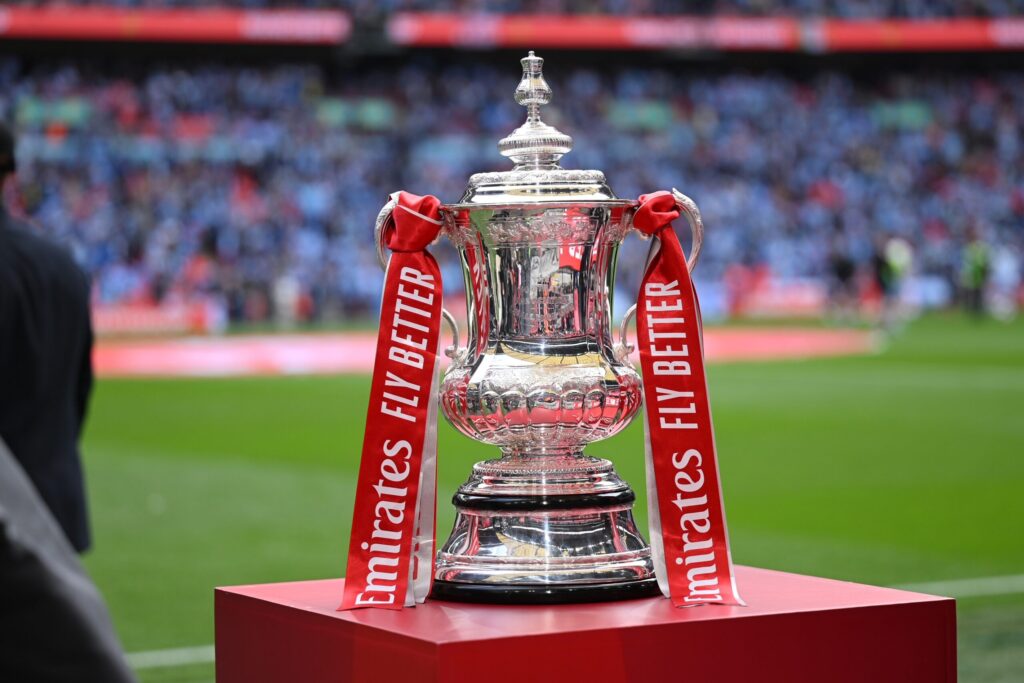The FA Cup, established in 1871, remains one of the most iconic and cherished football competitions globally. With its rich history and tradition, the FA Cup has evolved to play a unique role in the ever-changing landscape of modern English football. While the competition’s legacy is deeply rooted in the past, its influence on teams, players, and fans continues to resonate in today’s fast-paced footballing world.
1. Preserving the Spirit of Tradition
The FA Cup serves as a bridge between the past and the present. It is the oldest football competition in the world, and its traditions are preserved in every round. From the initial draws involving non-league teams to the grandeur of the Wembley final, the competition maintains an aura of authenticity and respect for the game’s roots.
While English football has undergone commercialization and structural changes, the FA Cup remains a bastion of traditional values. The competition reminds fans of the joy of unpredictability and the romance of underdog victories that have long defined its character.
2. A Platform for All Levels of Football
One of the FA Cup’s most defining features is its inclusivity. It provides a platform for clubs across all tiers of English football, from amateur sides to Premier League giants, to compete on the same stage.
For non-league and lower-tier teams, the FA Cup is a rare opportunity to gain national attention, secure financial rewards, and test their mettle against top-tier opposition. For example, Lincoln City’s historic run to the quarterfinals in 2017 and Marine FC’s clash with Tottenham Hotspur in 2021 exemplify how the competition creates opportunities for smaller clubs to shine.
3. Promoting Community Engagement
The FA Cup fosters a strong sense of community. Smaller clubs rely on the support of their local fans, who often rally behind their teams during the competition. This grassroots engagement strengthens the connection between clubs and their supporters, enhancing the overall appeal of the tournament.
For top-tier clubs, the FA Cup provides an opportunity to reconnect with their heritage and fanbase. It offers moments of nostalgia for fans, evoking memories of iconic finals and legendary players who have graced the competition.
4. An Avenue for Player Development
The FA Cup is not just about teams; it also serves as a stage for individual players to showcase their talent. Young prospects often use the competition as a stepping stone to establish themselves in their squads. Managers frequently rotate their lineups in the early rounds, giving opportunities to academy graduates and fringe players.
Players like Marcus Rashford and Bukayo Saka made their marks in domestic cup competitions before becoming household names. The FA Cup continues to play a crucial role in nurturing talent and shaping the future of English football.
5. Balancing Tradition and Modern Demands
Modern English football is defined by packed schedules, commercial priorities, and the dominance of league competitions. Despite these challenges, the FA Cup has adapted to remain relevant. Changes such as the abolition of replays in later rounds and the introduction of VAR demonstrate how the competition is evolving to meet modern demands while preserving its essence.
The FA Cup remains a prized trophy for clubs. Winning it not only provides silverware but also offers a route to European competition, adding another layer of importance for teams vying for continental success.
6. Financial Impact
For lower-tier clubs, the financial rewards of an extended FA Cup run can be transformative. Prize money, increased ticket sales, and television revenue provide much-needed funding to sustain and develop these clubs. Even a single high-profile fixture against a Premier League side can bring significant financial benefits, ensuring the survival of smaller teams.
For top-flight clubs, the FA Cup’s financial incentives may not rival league earnings, but the competition still holds prestige and marketing value, reinforcing the importance of success on this historic stage.
7. Memorable Moments in Modern FA Cup History
The FA Cup continues to deliver moments that captivate fans. From Wigan Athletic’s stunning victory over Manchester City in 2013 to Leicester City’s emotional triumph in 2021, the competition reminds us why it holds a special place in the hearts of football lovers. These moments transcend the sport, creating lasting memories that define the magic of the FA Cup.
8. The FA Cup in the Digital Age
The digital revolution has further amplified the FA Cup’s reach. Social media, streaming platforms, and global broadcasting have brought the competition closer to fans worldwide. Iconic matches and moments are now shared instantly, allowing fans to engage with the FA Cup like never before.
Clubs and players also use digital platforms to connect with supporters, adding a new dimension to the tournament’s appeal in the modern era.
The FA Cup remains a cornerstone of English football, embodying tradition, inclusivity, and community spirit. Its ability to adapt to modern demands while preserving its historical significance ensures its enduring relevance in the footballing calendar.
As fans eagerly anticipate the 2025 FA Cup, the competition continues to inspire, unite, and deliver unforgettable moments that define the beautiful game.
Football fans can support their favorite teams and stay updated on all the latest FA Cup news and stories through the BP9. Join the community and celebrate the enduring magic of England’s oldest football competition!

